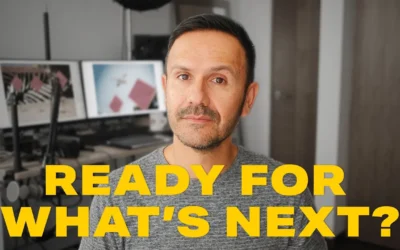How much do editors make in the film and television industry? That’s a question I hear all the time — and in this post (based on Part 1 of my YouTube video series), I’m breaking it down with real numbers, real experience, and a realistic look at what you can expect depending on your role and the kind of projects you work on.
Whether you’re just starting out or you’ve been in the game a while and want to earn more, understanding the landscape of editor pay is essential — because this career is not one-size-fits-all. There’s no fixed salary. It depends on a combination of factors: the type of project, your experience level, your location, and whether you’re part of a union or not.
How Much Do Editors Make? Let’s Talk Numbers!
If you’re working as an assistant editor on lower-budget projects or in non-union markets, you might be looking at around $250–$350 per day. That could translate to $30,000–$84,000 per year, depending on how steady your work is. On larger union shows, assistant editors often follow negotiated scale rates, and that number can be higher.
For editors working on scripted TV, especially in places like Los Angeles and New York, rates can vary widely — but it’s not uncommon to earn $4,000 per week. If you’re working on high-profile series, or if you’re consistently getting work on major platforms or studios, you could earn much more than that.
Freelancers in commercials, branded content, and online projects might bring in $500 to $1,000+ per day, but that can fluctuate a lot based on demand, turnaround times, and client budgets.
The bottom line? Editor pay varies — a lot. But the more you understand how the system works, the more strategic you can be in building a sustainable career.
Factors That Impact Editor Pay
Several key elements determine how much editors make:
- Experience Level – Are you just starting out, or do you have a few shows under your belt? Your credits matter.
- Type of Content – Narrative TV and films often pay more than reality, documentary, or digital content.
- Union Status – Working under a union contract typically guarantees minimum rates and protections.
- Geography – Rates differ significantly between Los Angeles, New York, international markets, and remote work.
- Post-Production Budget – Big studios and networks have more money than indie producers or small agencies.
That’s why I always say: don’t just ask “how much do editors make?” — ask “how much do editors make in the kind of work I want to do?” That specificity will help guide your career path.
What I’ve Learned Through Experience
Over the years, I’ve worked on a wide range of projects — from indie films to major streaming series. What I’ve learned is this: consistency and positioning matter more than chasing high pay on a single job.
Some of the best-paying jobs I’ve had weren’t necessarily the most creatively fulfilling — and vice versa. So for me, it became about aligning with the kinds of projects I actually enjoy editing, while also negotiating fair rates, building relationships, and staying booked.
In this video, I go into more detail about what editors really earn, and how to set your expectations and your rates as your career evolves.
Watch the Full Breakdown
This is just Part 1 — in the next post and video, I’ll be sharing more insights into negotiating your rate, understanding union scale sheets, and how to transition from assistant to editor.
If you’ve ever asked yourself how much do editors make across different roles, this post breaks it down with real-world context and industry insight.
Keep Learning & Building Your Career
If this kind of real talk about the editing industry is helpful to you, I invite you to:
🎧 Check out the Hollywood Editing Mentor Podcast
📘 Download the Free Guide to Breaking Into Scripted TV
👥 Get the All-Access Pass to the HEM Community
And if you haven’t already, hit subscribe on YouTube for more breakdowns like this one.





0 Comments